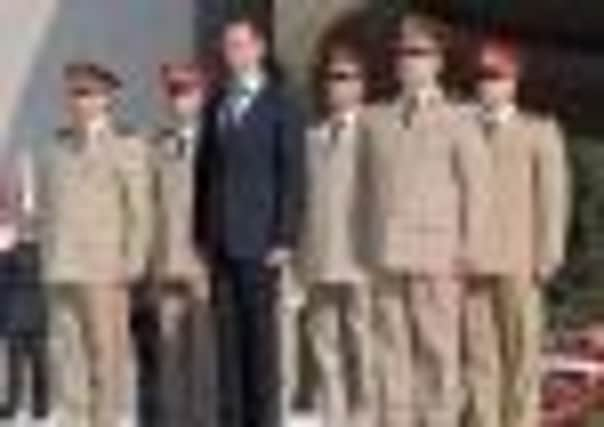Syria slides towards civil war with rise of Free Army led by defectors


Colonel Riad al-Asaad – the group’s leader and former air force chief who recently fled to Turkey – has claimed he now has more than 10,000 members and called on fellow soldiers to join him in overthrowing the “murderous” regime.
While analysts said those numbers might be inflated, Col Asaad was confident more soldiers would soon join his ranks.
Advertisement
Hide AdAdvertisement
Hide Ad“They will soon discover that armed rebellion is the only way to break the Syrian regime,” he said. “I call on all the honourable people in the Syrian army to join us so we can liberate our country,” he said. “It is the only way to get rid of this murderous regime.”
The dissident group is gaining momentum that signals a trend toward militarisation of the uprising. That momentum has raised fears that Syria may be sliding towards civil war.
The movement could propel the revolt by encouraging more senior-level defections, or it could backfire horribly, giving Damascus a new pretext to crack down even harder than it already has.
Until the rebels can secure a territorial foothold as an operational launching pad – much like the eastern city of Benghazi was for the Libyan rebels – the defections are unlikely to pose a real threat to the unity of the Syrian army.
“The Libyan model is looking increasingly attractive to the Syrian opposition,” said Shadi Hamid, director of research at The Brookings Doha Centre in Qatar. However, Mr Hamid described the dissident army as a “high risk, high reward situation.”
He said territorial gains might encourage the international community to offer support and make regime change more real in the minds of outside observers. “But the flip side of that is that it gives the regime … pretext to wipe out a city so it is a very risky move,” he added.
International intervention, such as the Nato action in Libya that helped topple Colonel Muammar al-Gaddafi, is all but out of the question in Syria, with little appetite for intervening in yet another Arab nation in turmoil. There is also real concern that ousting Mr Assad would spread chaos across the region.
Syria is a geographical and political linchpin in the heart of the Middle East, bordering five countries with which it shares religious and ethnic minorities and, in Israel’s case, a fragile truce. Its web of alliances extends to Lebanon’s powerful Hezbollah movement and Iran’s Shia theocracy. There are worries that a destabilised Syria could send unsettling ripples throughout the region.
Advertisement
Hide AdAdvertisement
Hide AdThe Syrian opposition has welcomed the formation of the Free Syrian Army, which disseminates information through the internet and a Facebook page, where it sometimes post claims of responsibility for alleged attacks against “Assad gangs” and the military. But it is unclear how much command the group actually has on the ground.
Small-scale defections have been reported in Syria since early on in the uprising. Col Asaad said he defected from the army in July after refusing to heed orders to shoot protesters. But the numbers have been increasing in the past few weeks.